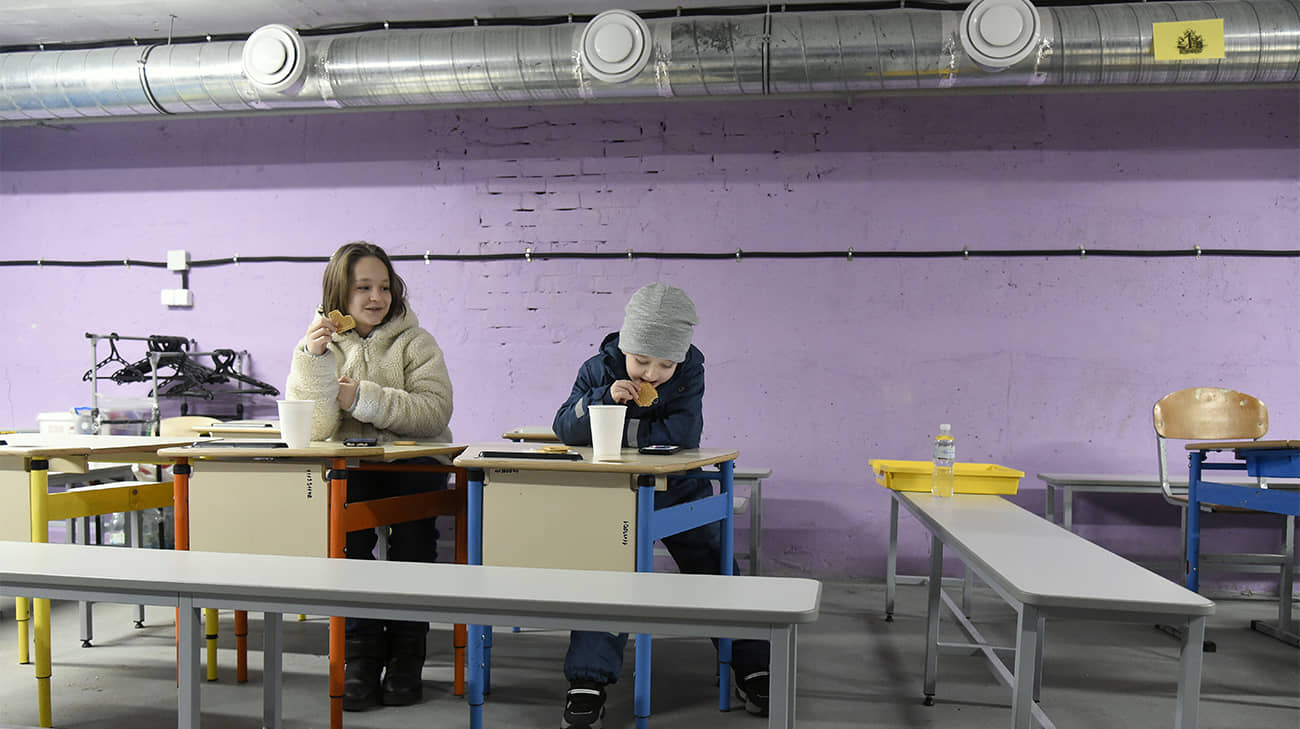Children in frontline areas spent up to 7 months in shelters since 2022, reports UNICEF
Since the beginning of the full-scale invasion of Ukraine, children in the frontline areas have been forced to spend 3,000 to 5,000 hours or four to seven months in shelters. Source: United Nations Children's Fund, UNICEF Quote: "The war in Ukraine has shattered childhoods and wreaked havoc on children's mental health and ability to learn.

Since the beginning of the full-scale invasion of Ukraine, children in the frontline areas have been forced to spend 3,000 to 5,000 hours or four to seven months in shelters.
Source: United Nations Children's Fund, UNICEF
Quote: "The war in Ukraine has shattered childhoods and wreaked havoc on children’s mental health and ability to learn.
Children have experienced two years of violence, isolation, separation from families, loss of loved ones, displacement and disrupted schooling and healthcare. They need this nightmare to end," noted UNICEF Executive Director Catherine Russell.
Over the two years of full-scale invasion, around 3,500 air-raid sirens were sounded in Zaporizhzhia and Kharkiv oblasts, and 6,200 warnings were issued in Donetsk Oblast. The situation is particularly challenging during the cold season, as shelters may lack heating or electricity.
Many children in Ukraine have experienced the psychological consequences of the war. Surveys indicate that half of children aged 13–15 have trouble sleeping, and one in five has intrusive memories or thoughts related to the war. This is one of the symptoms of post-traumatic stress disorder (PTSD).
UNICEF also reports an increase in the levels of anxiety, excessive fear, phobias, and sadness in children, as well as a decrease in interest in learning, sensitivity to loud sounds, and more.
"Education is a pillar of hope, opportunity and stability in children’s lives, but it continues to be disrupted or out of reach for millions of Ukraine’s children," noted Catherine Russell.
As per the latest PISA-2022 data, compared to 2018, education in 2022 is characterised by several gaps: children have essentially lost two years in reading and one year in mathematics.
Background: Surveys show that the number of Ukrainians satisfied with life has decreased compared to 2022.
Support UP or become our patron!



